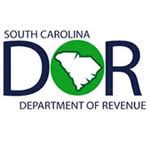How to Keep Your Tax Records Safe in an Emergency
August 8, 2022It’s hurricane season again and last year marked the first time that two consecutive hurricane seasons used all 21 storm names, according to the National Oceanic and Atmospheric Administration. Five of the storms last year impacted South Carolina, the SC Department of Natural Resources reports.
Meanwhile, swarms of earthquakes in the Midlands since December may have generated the longest period of earthquake activity in the state’s history, according to the South Carolina Emergency Management Division (SCEMD).
The best time to prepare for an emergency is before an emergency occurs. Part of that preparation should include safeguarding important paperwork, including your tax returns. Use these tips from the South Carolina Department of Revenue (SCDOR) and the IRS to help keep your tax records safe no matter what type of an emergency may come.
For individuals and businesses:
- Use paperless recordkeeping. Scan paper documents to save electronic copies, and back up your computer often. Keep electronic copies of tax records, bank statements, W2s, home-closing statements, and insurance records. Consider keeping duplicate backup copies on an external storage device, like a flash drive or hard drive. Store these duplicates in a safe place, like a waterproof container at a trusted relative’s home or in a safe deposit box.
- Don’t choose your safe storage spot only out of convenience. If a disaster strikes your home or business, it will likely affect the surrounding area. Store passwords and information needed to access your returns and records in a safe place, like a secure password manager.
- File online. Filing online is faster, more accurate, and ensures returns are protected from a natural disaster.
- Keep a visual record of your property. Photos or videos of your home or business’ contents before a disaster can help support any claim of loss on a tax return or with insurance. Store the photos or videos in a safe place, like a secure cloud storage service, or with a friend or family member who does not live near you.
General tips:
- Keep your emergency plans updated. How fast you can recover from a disaster depends on how well in advance you plan for one. Here are some tips:
- Get informed about hazards and emergencies, and learn what to do for specific hazards.
- Learn where to seek shelter.
- Back up your computer data systems regularly.
- Decide how you will communicate with employees, customers and others.
- “Know your zone, prepare your home.” Coastal residents should be aware of what evacuation zone they are in. Learn more at scemd.org.
- Practice and maintain your plan.
- Always have an emergency supply kit ready during hurricane season, and make sure you know your evacuation routes. Include a portable generator. Learn more at scemd.org.
Remember, make sure you do these things to prepare before hazardous conditions approach. The SCDOR and the IRS can provide copies of your previously filed returns. Learn more about emergency preparedness and how we can help at dor.sc.gov/emergencies.
Additional Resources:
hurricane.sc – This interactive website available from SCEMD helps you better prepare for hurricanes.
SC Emergency Manager app – The official app from SCEMD allows users to create personalized emergency plans, keep track of supplies, and more.
SCEMD: Emergency Planning
IRS: Planning for Disasters














